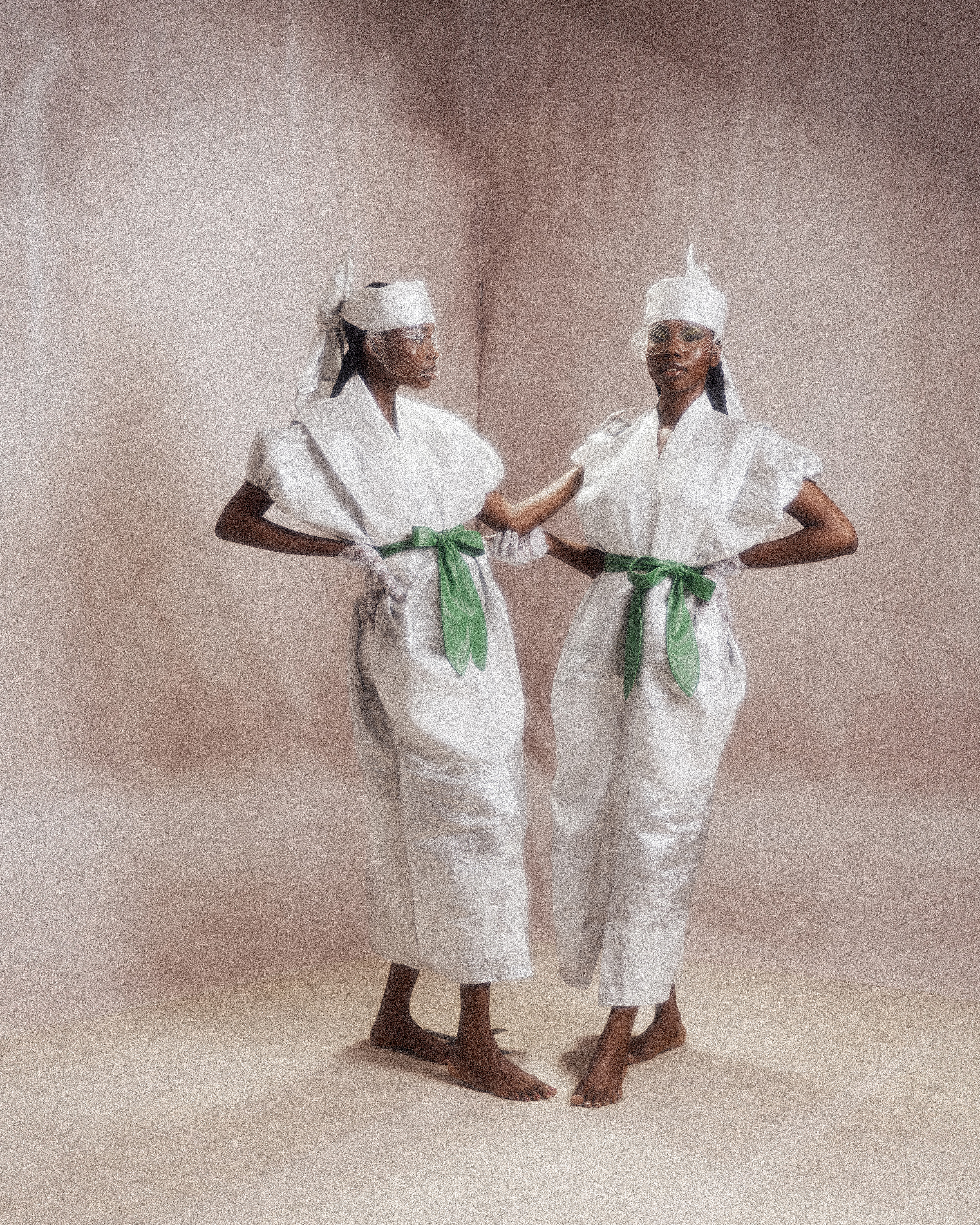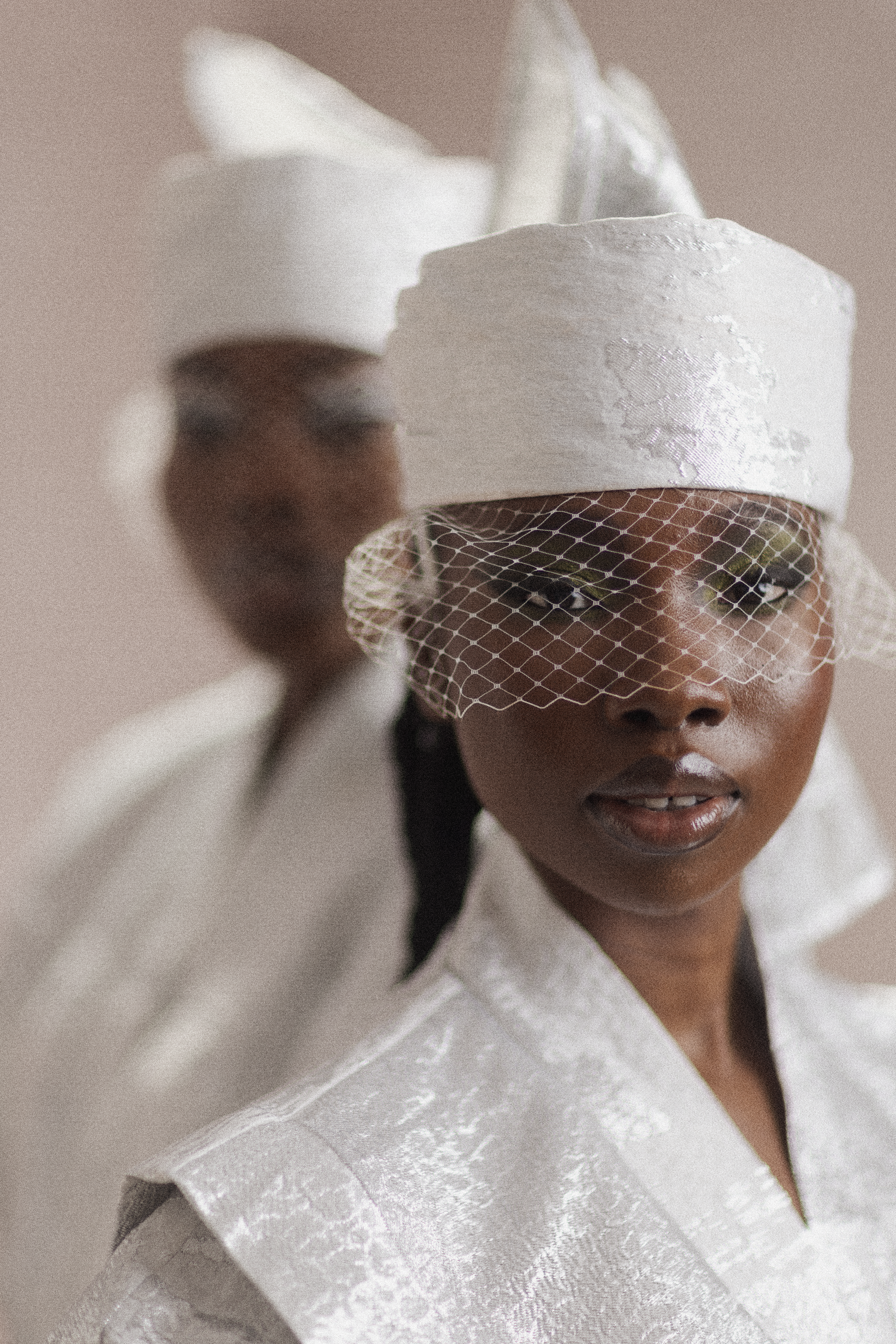Meet Obinna Obioma—a New York-based photographer, visual artist, and art director. His latest project, “Ụdị Ejiji Ọktoba”, reimagines the sartorial choices of Nigeria’s Independence Day, blending nostalgia with modernity to honor the nation’s journey. Through rich textures, bold colors, and dynamic silhouettes, Obioma celebrates the spirit of individuality, freedom, and unity passed down through generations. Below, Obioma answers questions from Guzangs, offering deeper insights into his work and creative process.

Guzangs: What inspired you to create “Ụdị Ejiji Ọktoba,” and how does it connect to Nigeria’s Independence Day for you personally?
Obinna Obioma: “Ụdị Ejiji Ọktoba,” which means “October Fashion Style” in Igbo, was inspired by the desire to reflect on Nigeria’s history of pride and resilience. Independence Day in October marks a defining moment when Nigeria reclaimed its narrative, and fashion played a key role in expressing the newfound sense of freedom.
Personally, this project is part of my journey to reconnect with my heritage and explore how clothing acts as a marker of identity, resistance, and aspiration. It is a tribute to the pride we carry in our ancestry and how we continue evolving while remaining grounded in those roots.
Guzangs: Can you share more about the creative process behind blending traditional and contemporary fashion elements in this series?
Obinna Obioma: This series is a dialogue between the past and present. I researched post-independence Nigerian fashion to understand the symbolism in fabrics and styles from that era. I then incorporated modern trends while retaining the cultural essence—combining bold patterns with minimalist, structured designs.
To provide context, I used props like coral beads, hand fans, a world globe, and the Nigerian flag. The goal was to create a visual narrative that balances nostalgia with modernity, showing how fashion evolves as part of our identity.
Guzangs: What role do colors and textures play in telling the story of Nigeria’s journey through fashion?
Obinna Obioma: The colors and textures in “Ụdị Ejiji Ọktoba” are symbolic of Nigeria’s journey. I made sure to incorporate the national colors—green and white. Green reflects our connection to the land and tradition, while bold, vibrant hues capture the energy and dynamism of our culture.
The textures blend soft fabrics reminiscent of traditional attire with sharper, structured materials, symbolizing the transition from past to future. These elements convey the complexity of our identity—deeply rooted in tradition but constantly evolving.
Guzangs: How does this project build upon your previous work, “Anyi N’aga,” and what new themes or ideas are you exploring?
Obinna Obioma: “Anyi N’aga,” meaning “We Are Going,” focused on collective movement and migration—exploring how shared experiences shape identity. With “Ụdị Ejiji Ọktoba,” I zoomed in on the role of the individual in this journey, looking at how personal fashion choices express evolving identities.
Both projects explore themes of memory, reinvention, and the blend of old and new. However, “Ụdị Ejiji Ọktoba” emphasizes how fashion serves as a personal statement of pride within a collective history.
Guzangs: What message do you hope viewers will take away from the visual narrative in “Ụdị Ejiji Ọktoba”?
Obinna Obioma: I want viewers to see that fashion is more than clothing—it’s a powerful form of self-expression. This series celebrates freedom: the freedom to honor heritage while embracing the future.
I hope people reflect on how history shapes both the present and the future, and how every garment can be a symbol of national pride. “Ụdị Ejiji Ọktoba” highlights not only Nigeria’s cultural resilience but also her leadership on the African continent and the world stage.
Guzangs: How do you see fashion evolving in the context of Nigeria’s cultural heritage and identity?
Obinna Obioma:
Fashion in Nigeria is becoming a tool for both preservation and innovation. We are seeing a revival of traditional fabrics and motifs, but reinterpreted with fresh, modern designs that resonate globally.
I believe Nigerian fashion will continue to draw from its rich cultural history while pushing the boundaries of creativity. Fashion becomes a form of storytelling—each piece reflecting where we come from, but also where we aspire to go. This evolving identity is what makes our fashion so powerful.

Credits;
Photography and Art Direction : Obinna Obioma @mrobinnaobioma
Styling @TheMelangeStyling @Styleinfidel
Models @modellike_gift @olubukola_ogunniyi
MUA @casskoncept1
Assists @b.m.t.i @sanisegunkabir @tosanesan